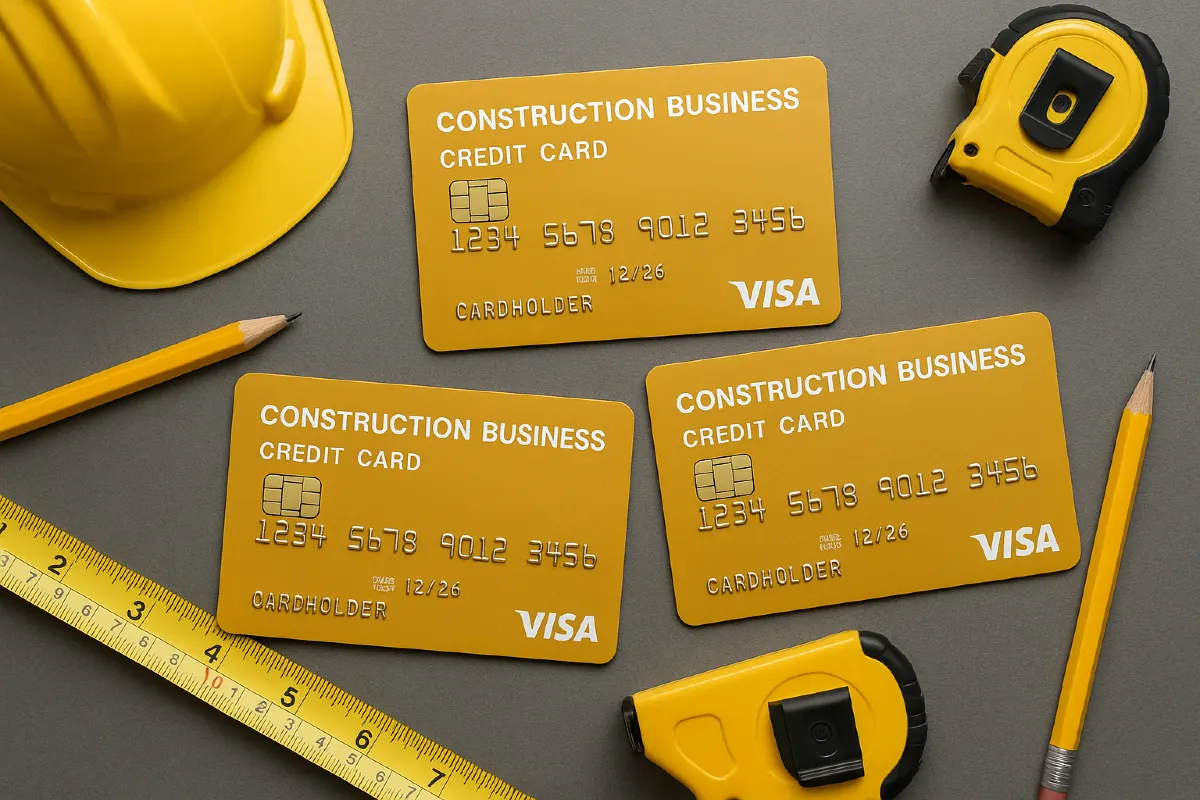
How Construction Business Credit Cards Can Simplify Equipment and Supply Purchases
Running a construction business means managing countless moving parts—deadlines, permits, labor, logistics, and most importantly, costs. Whether you’re a general contractor, builder, or subcontractor, staying on top of material and equipment expenses is vital to maintaining profitability and efficiency.
That’s where construction business credit cards come into play. These cards are tailored to the unique needs of the construction industry, offering flexible spending limits, reward programs, and streamlined expense tracking. But one of the most overlooked benefits is how they can simplify equipment and supply purchases—from major machinery rentals to everyday hardware store runs.
In this article, we’ll explore the many ways construction business credit cards can make procurement faster, easier, and more strategic.
Contents
Why Credit Cards Matter in Construction Purchasing
Construction companies often operate with tight cash flow. Projects are paid out in stages, while costs are upfront and ongoing. This creates a timing gap—especially when it comes to equipment rentals, tool upgrades, or supply runs.
Credit cards help close this gap by:
- Offering short-term financing for materials and tools
- Providing transaction records for easier accounting and job costing
- Unlocking vendor-specific discounts and cashback on relevant purchases
And unlike personal credit cards, construction business credit cards are built to scale with your operations—providing higher limits, employee card access, and integration with financial software.
Key Benefits of Using Construction Business Credit Cards for Equipment and Supplies
Let’s dive deeper into the specific advantages these cards bring to the table when purchasing materials or equipment:
1. Streamlined Purchasing at Supply Stores
Whether you’re buying lumber, plumbing supplies, paint, or power tools, most construction businesses rely heavily on big-box stores like Home Depot, Lowe’s, or local suppliers. Business credit cards often come with:
- Bonus rewards for hardware store purchases
- Vendor-specific financing options
- Bulk-purchase reporting tools
For example, some cards offer 5% cashback on purchases made at select supply retailers, helping you save money on essential items you already buy regularly.
2. Simplified Equipment Rentals and Payments
Need to rent a backhoe or forklift for a week? Business credit cards make it easy to book equipment rentals quickly and manage recurring charges.
Benefits include:
- Deferred billing options (buy now, pay later within the billing cycle)
- Emergency access to higher credit limits for urgent needs
- Insurance and rental coverage built into the card’s benefits package
This can be crucial for small to midsize contractors who can’t afford equipment outright or want to avoid short-term bank loans.
3. Expense Tracking and Job Costing
Construction business credit cards often come with detailed statements, online dashboards, and integration with accounting software like QuickBooks or Xero. This means:
- Every equipment and supply purchase is logged by vendor, date, and amount
- Purchases can be categorized by job site, client, or project
- Easier tax prep and financial reporting
This transparency not only simplifies financial management but also helps identify cost overruns before they snowball.
4. Employee Card Access and Spending Controls
Construction businesses frequently have multiple team members handling purchasing—foremen, site managers, or office staff. With a business credit card, you can:
- Issue employee cards with individual spending limits
- Set purchase category restrictions
- Monitor real-time transactions from a centralized dashboard
This reduces misuse, eliminates reimbursement delays, and ensures field workers have access to supplies when they need them—without using personal funds.
5. Improved Vendor Relationships
Many equipment rental companies and supply vendors prioritize clients with a reliable payment history. Using a credit card ensures:
- Prompt payment, even if you haven’t received your client draw yet
- Consolidated billing, which makes vendor management easier
- Opportunities for early-pay discounts or loyalty programs
A credit card with flexible terms also gives you negotiating power, especially with smaller, local suppliers who appreciate fast and predictable payments.
6. Rewards, Cashback, and Perks
Construction is a high-spend industry, so why not earn something back? Many construction business credit cards offer:
- Cashback on office supplies, fuel, and travel
- Points or miles that can be redeemed for travel or future purchases
- Introductory 0% APR periods, useful for financing a large equipment purchase
When used responsibly, these rewards can become a valuable asset to your business.
Real-Life Example: Small Contractor, Big Gains
Let’s say you’re a small general contractor working on three residential builds. You use a construction business credit card to:
- Buy $10,000 worth of lumber and roofing material from Home Depot
- Rent a skid steer for 2 weeks at $3,000
- Order $2,500 worth of lighting and fixtures online
Instead of pulling from your checking account or waiting on a bank loan, the credit card covers your upfront costs, and you:
- Earn 2% cashback (that’s $310 back in rewards)
- Categorize all purchases by project in QuickBooks
- Set up automatic monthly payments to maintain a strong credit profile
This setup saves time, reduces manual paperwork, and helps keep the business running smoothly—even between payment draws.
Final Thoughts
In the fast-paced world of construction, time is money—and so is efficiency. Construction business credit cards are more than just a way to pay for supplies. They’re a financial tool designed to simplify operations, improve cash flow, and support smarter purchasing decisions.
Whether you’re buying a hammer drill or leasing heavy machinery, the right business credit card can help you stay organized, in control, and ready for whatever your next project demands.


